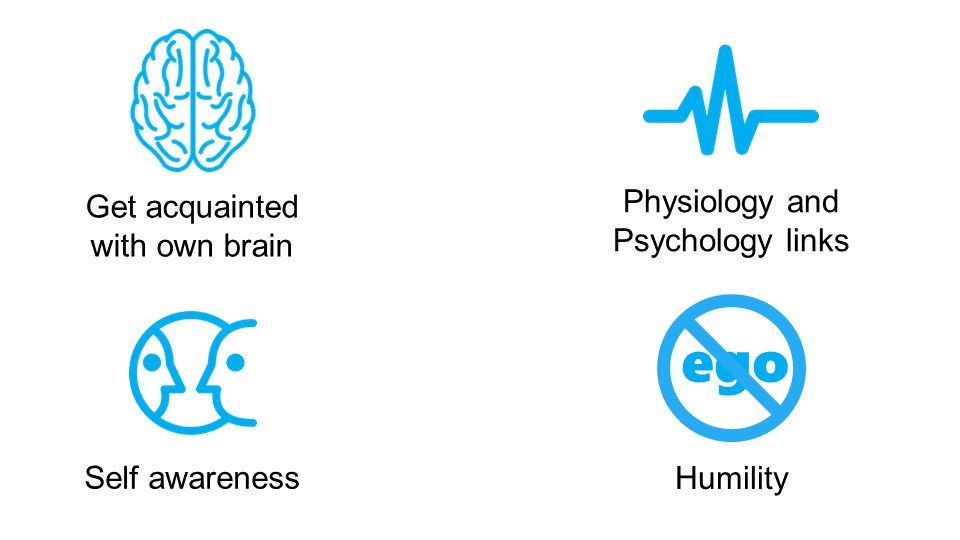 What is the first thing to consider when leading and managing people through the rapidly-changing business and working environment? Keeping up with the changes? Inspiring confidence in your people ? Listening to their concerns?
What is the first thing to consider when leading and managing people through the rapidly-changing business and working environment? Keeping up with the changes? Inspiring confidence in your people ? Listening to their concerns?
All important, but my advice is first to focus on yourself.
After all, you can’t effectively lead others unless you’ve led yourself through the impact the change is having on you. This is something many leaders fail to do effectively.
Be aware of your own level of discomfort
Humans are actually pretty good at adapting to change, yet we often find it disconcerting and stressful. It is essential to be aware of how we ourselves feel about a change before we lead our team through it. Sometimes we are not aware of how our feelings are affecting our behaviour towards others. Simply ask yourself every now and again, “how do I feel right now?”. Developing emotional self awareness is a great start. Turning your discomfort into insight (many others will probably be feeling the same way) can help you help lead them better.
Manage your own emotional state
Once armed with self awareness, we can work on choosing to manage our own emotional state.
Work over the last few decades shows the clear link between our physiology (in particular our breathing) and how we feel and think. We can use this insight to enable us to choose how we feel about changes and manage our emotional state accordingly. There is a reason why so much has been written about breathing, mindfulness and related practices for leaders. If you haven’t looking into this yet, do so.
Awareness of your conditioning and bias
Even though most of us have adopted modern ways of working to varying extents, those of us with 25+ years of experience of a particular way of working have been unconsciously conditioned to expect things to be done in a particular way. For example, we might unconsciously disapprove of people working from home. Or we might believe the most senior person has the most valuable opinion. Sometimes this conditioning isn’t obvious and in previous posts I’ve written about some of the classic conditioning-driven mistakes, such as an over-reliance with the highest person’s opinion.
Humility
Humility has always been attractive in a leader, but in a more networked, transparent and less hierarchical world, humility is essential. Knowing the difference between confidence and ego is key.
Knowledge dispels fear
In my yacht racing days, we had an expression when taking on big challenges: “knowledge dispels fear”. Take time to inform yourself about the changes occurring in the world of work right now and find out what is just around the corner. Think about how this might need tweaks to your leadership approach. Explore changes in your people’s work expectations – talk to different groups, especially different generation groups. Reciprocal mentor if you can – that is two way mentor someone older younger or more senior/less senior than you.
So before focusing on leading others through change, make some space and time to better understand, manage and lead yourself.
If you’d like to inspire and enable your leaders to better engage their teams by embracing the future of work, then call Simon on 020 3488 0464 or email simon@simonwalker.org








